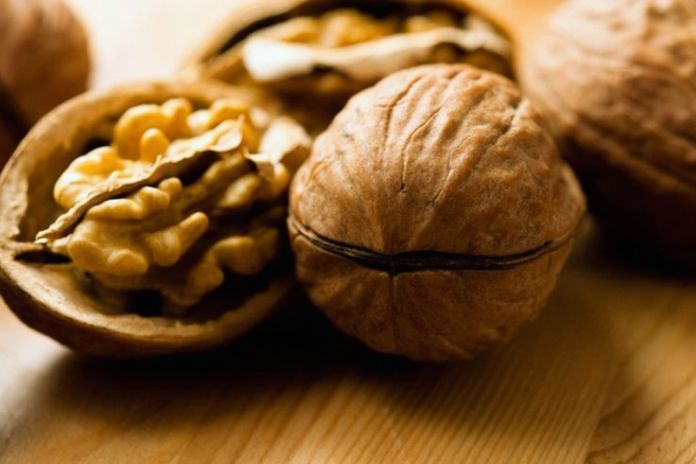They are one of the strengths of the Mediterranean diet. They have been under the scrutiny of nutrition scientists for years and are increasingly on tables: let’s talk about walnuts. Among all types of nuts, they are among the most studied to evaluate their contribution to a healthy diet. Let’s see the main health benefits associated with the consumption of walnuts and their most interesting nutritional characteristics.
Nuts And Health
As always, the difference is not made by individual foods but by daily eating habits and lifestyle as a whole. In various cohort studies, however, nut consumption has been associated with reduced coronary heart disease and cancer rates and lower mortality from both causes. Why? What do walnuts contain?
Fats
Walnuts contain considerable quantities of fats but are of a “useful” category, as the fatty acids are mainly unsaturated; in particular, they are the food with the highest alpha-linolenic acid (ALA), an omega three series fatty acid. It is defined as “essential” because the body cannot synthesize it and must be introduced to the diet. Many studies have linked it to a lower risk of cardiovascular disease, including heart attack and stroke, thanks to various positive effects on heart rhythm, cholesterol levels, platelet aggregation, vascular wall tone, and immune and inflammatory mechanisms linked, among other things, to atherosclerosis.
Phytosterols
Like all plant foods, walnuts are cholesterol-free but contain phytosterols, compounds studied for their antioxidant properties, and because they appear to promote the reduction of “bad” cholesterol, low-density lipoprotein (LDL). With an average of 113 mg per hundred grams of product, walnuts are among the foods richest in phytosterols.
Minerals
Like many plant foods, walnuts contain little sodium (2 mg/100 g) but are rich in potassium (441 mg/100 g), magnesium (158 mg/100 g), and calcium (98 mg/100 g). These minerals are involved in several fundamental processes for our body, such as insulin sensitivity, blood pressure regulation, and vascular reactivity. For example, there is evidence that increasing dietary potassium mitigates sodium’s (adverse) effects, with positive effects on blood pressure and preventing stroke and cardiovascular disease.
Direct associations with lower risks for the heart and blood vessels also emerged due to the presence of magnesium in the diet. At the same time, the most exciting data on calcium show a potential role with vitamin D in preventing fractures, especially hip fractures. And if we consider all three together? Combining dietary potassium, magnesium, and calcium has been associated with a reduced risk of stroke, with a likely synergistic effect.
Vitamin E
The term vitamin E includes four types of tocopherol, α-tocopherol, β-tocopherol, γ-tocopherol, and δ-tocopherol. Specifically, walnuts are an excellent source of γ-tocopherol (21 mg/100 g), which is believed to be the form of vitamin E with cardioprotective effects.
Melatonin
Melatonin is a hormone synthesized by the pineal gland of mammals, known above all as a “regulator” of sleep. It is also contained, as phytomelatonin, in various plants, and walnuts are one of the primary food sources (350 ng/100). That said, there is currently no evidence that walnuts improve sleep quality. Some data, however, has emerged regarding the beneficial effects on mood, attributed, according to a small study on healthy young people, to the co-presence of melatonin, alpha-linolenic acid, and antioxidants.
Polyphenols
Among the foods that populate our pantries, walnuts deserve mention for their contribution of polyphenols (up to 2500 mg/100 g). Some of these polyphenols ( ellagic acid and urolithins in particular ) show antioxidant, anti-inflammatory, anticancer, and prebiotic activities, suggesting a series of beneficial effects on human health, the mechanisms of which, however, are still subject to discussion. We know that an inhibitory effect on cancer cells has been studied in vitro and animal models and that an improvement in intestinal microbiota has been documented.
Energy
Walnuts provide a high caloric intake: about 600 calories for one pound. The recommended daily portion of 30 grams gives us about 180 calories. Depending on the needs, therefore, they can represent a good supply of energy in a small space (attractive quality for athletes, for example).
The Satiating Power
Thanks to the combination of calories, fiber, and protein intake, nuts have a high satiating power, which is why they are often recommended as a healthy snack.
The Flavor
The versatility in the kitchen and the organoleptic characteristics make them a valuable ally for flavoring foods, perhaps saving on salt, which, on the other hand, should permanently be reduced.
Also Read: Argan Oil For Hair: Benefits, Uses

